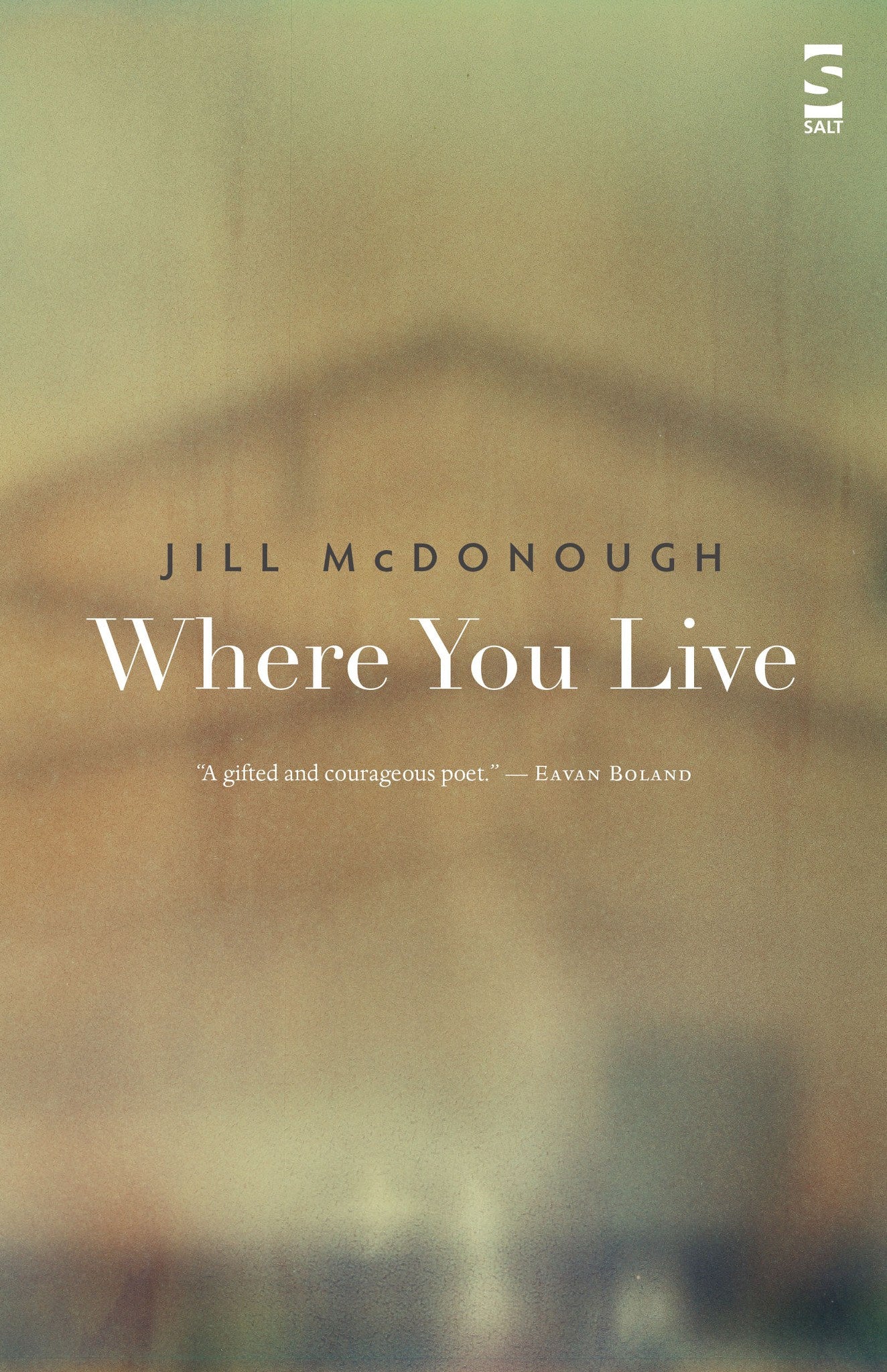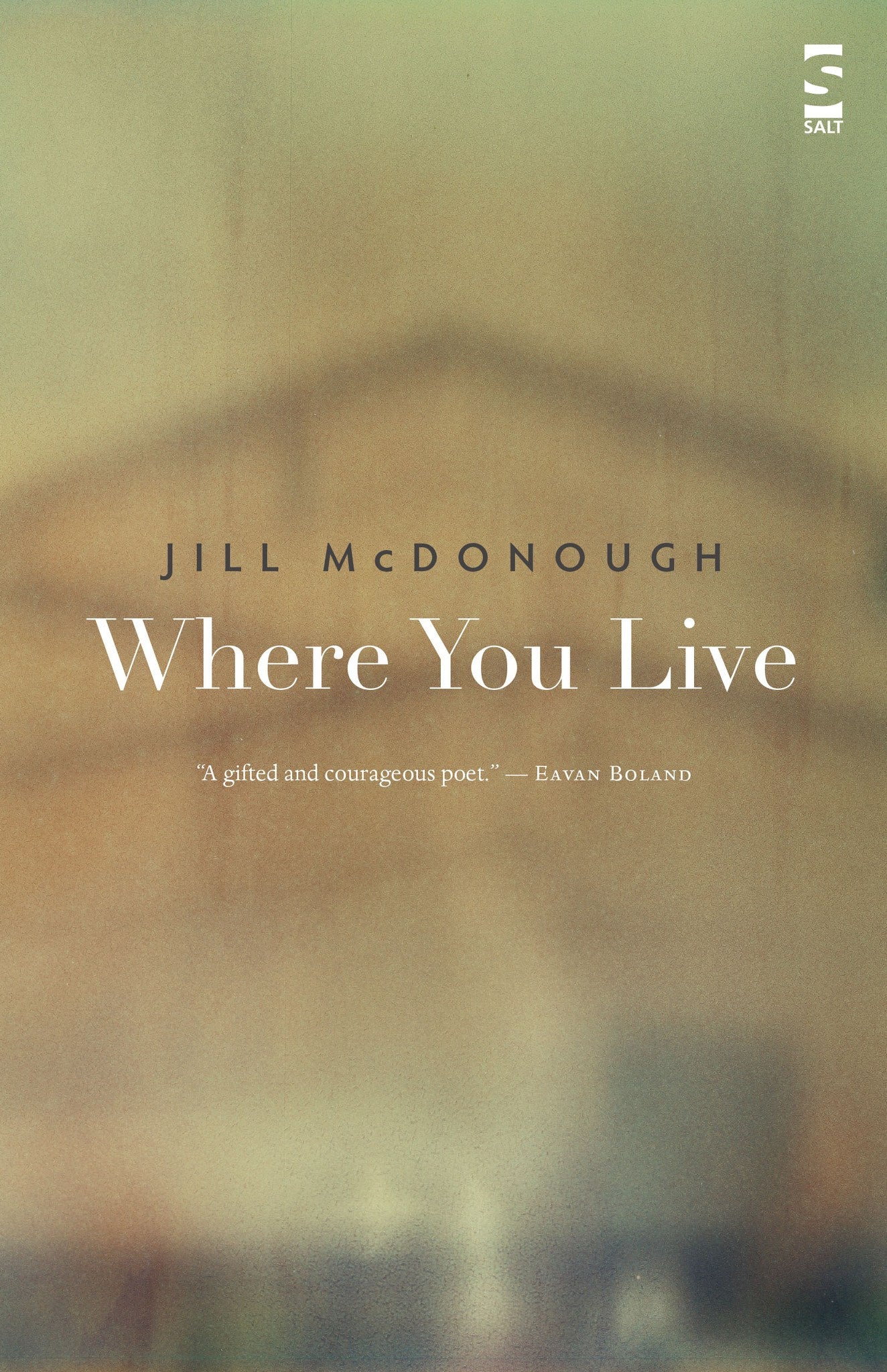Jill McDonough
Where You Live
Where You Live
ISBN:9781844719099
Couldn't load pickup availability
Synopsis
Martinis and fantastic breasts. A wild wedding hangover. Pink angora and instructing six women / to write tercets on snow. In lesbian love-poems, conversations, intimate jokes from a hundred parties, five prisons, and three beloved bars, Jill McDonough's second book tells where we live, and how: each day fresh with the gift of it. Fierce/nose-sting of tears, quick breath out of nowhere.
Often frankly autobiographical, her poems are also peopled with others' stories. Some are familiar – Cary Grant and Charles Darwin, Sappho and Hildegard von Bingen. Others we come to know: prison inmates Julie and Andrea, friends comforting in kitchens or riotous in the yard, the little Chinese lady from the Lucky Star kiosk. McDonough is honest with them: stitches their actual words into her poems, understands their motives and her own. This poetry is vivid with reality, even where the subjects are pictures: Mary in an illuminated Annunciation suspicious / in her lapis robes, her double chin doubting, perhaps / one eyebrow raised; or a small, unseemly Venus, hair in pearls holding the dead Adonis and furious at death and grief.
Above all there are poems of love and desire – I, Jill McDonough, have something to declare: je t'aime, je t'adore, Josey – ardent, funny, and erotically charged:
For better or worse. For root
canal, for laughing on the high
speed ferry to the cape. My mouth
on your neck, say. My hand on your
emerald-cut calf.
Praise for this Book
‘I am always proud to print Jill McDonough’s poems in my magazine, not only because she is one of the most exciting younger poets writing today, but also because she focuses on things that really matter. Her latest book, Where We Live, shows her working at the height of the powers, in poems that investigate (among other things) how our bodies have occupied the world and how we have occupied our bodies.’ —Wendy Lesser
‘Beneath the poker-faced humor and cosmopolitan wit in Jill McDonough’s Where You Live is a profligate mind, urgently intoning her inexhaustible humanity and our not-too-perfect existence. As always with her well-regarded, poetic narratives, the hilarity quotient is high, but also, too, her sense of history and a poignant seeing that makes any reader feel deeper than before, when they first encounter her poems. Each poem evidences a deep ardor for language. She names in her poems and makes a massive sweep and embrace of her large coterie of friends and family, and like Frank O’Hara, ecstatically divines and celebrates kinships until they emerge as a virtual village, a transcription of affections. You, reader, prepare to be embraced. Welcome to the World According to Jill.’ —Major Jackson
Product Details
Extent: 108pp
Format: Paperback
Publication Date: 15-Aug-12
Publication Status: Active
Series: Salt Modern Poets
Subject: Poetry by individual poets
Trim Size: 216 x 140mm


